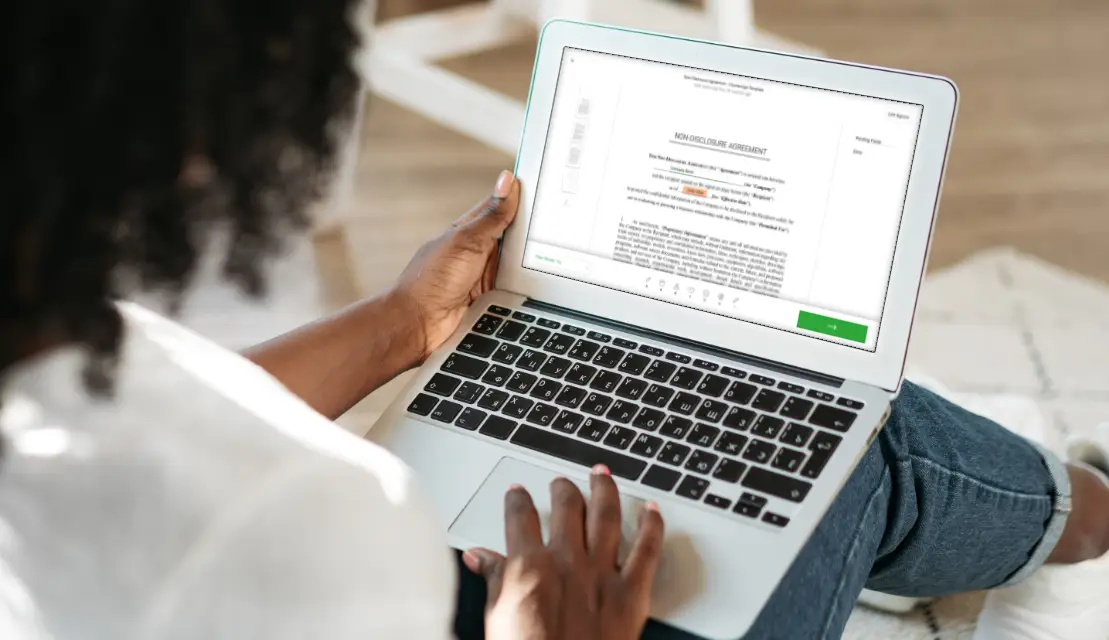The future of real estate is digital — no matter whom you speak with, they’ll tell you that everything from documents to records, mortgages, and property listings is already digital. But are you hesitant to try digital documents? We understand. After all, new technologies and ways of doing business can leave people uncomfortable and concerned about safety.
In this article, we’ll walk you through everything there is to know about digital documents, how safe they are, and how they can benefit your real estate transactions. Let’s dive right in.
What are digital documents?
Digital documents are electronic files that are stored electronically. They can be read online as well as downloaded and printed. This allows both the agent and the client to access documents that need to be reviewed or signed. Digital documents can come in various formats, and each has its use. The most popular is PDF (Portable Document Format). You may also encounter a .doc (Microsoft Word), .odt (OpenDocument) file, or a .xlsx (Microsoft Excel) document as alternative formats.
One of the greatest benefits of digital documents is that they are collaborative in nature. If an agreement requires multiple people’s input, you don’t have to request numerous copies or wait around for the other person to finish and pass it along. Everyone can open the same file and review it together. It’s great for anyone who wants their attorney to give their mortgage or leasing agreement a once-over while doing the same thing themselves.
Furthermore, you also won’t have to travel for hours to meet with your agent or client to discuss or sign the agreement — it can be done remotely using tools like Countersign.
Countersign helps you manage real estate deals online –
get contracts signed fast, from any device, at anytime.
Get started
Benefits of digital documents
Digital documents are commonly used when signing a contract or real estate deal. They are also used to preserve important records in the office. If you haven’t updated your office technology to include digital documents, you may have to scan and save several files to preserve them. But once you’ve incorporated digital documents into your office process, all you need to do is call up a template, fill in all party’s details, and send it off via email.
Real estate agents may use digital files as a way to store all of their client agreements, listings, and other relevant information. This makes it easier to retrieve them all simultaneously while also ensuring you don’t lose any of the important ones.
Digital documents are also used to manage real estate transactions, whether by storing property details, information on a buyer, or even another agent’s contract. Real estate deals such as these are heavily reliant on accurate and timely record-keeping.
Having all of your important documents in one place is a useful way to ensure that you always have access to them — along with all of the information they contain. This makes digital records better, not only for your own business but also for your clients, contractors, and suppliers.
The future of real estate
With the rise of the COVID-19 pandemic and people moving toward digital solutions, it only makes sense for the real estate industry to do the same. Let’s take a quick look at some of the ways digital documents are used in real estate.
Signing the lease
When signing a lease, the contract can be distributed and signed in no time at all. The lease agreement can be called up in an online e-signature solution and can be signed straight away. Any good service lets you even read and sign the documents right on your phone or tablet, so you can get the lease signed on location.
As soon as a digital contract is signed, it is distributed to all parties right away. There is no need for you to scan, email or even mail the signed documents. This is not only efficient but also most transparent to everyone involved.
Digital forms
Real estate is already full of digital forms and online applications. These go beyond the basic digital documents and provide you with everything from a mortgage calculator to a credit check. You can also use these tools to submit your application, request an estimate, and more.
The idea behind all of this is that things become easier as they move forward. This includes the process of buying or selling a property. A digital process means an efficient process that will take care of your time-sensitive business right at the moment when you need it. With e-signatures you can move forward towards a fully digitized workflow that will help you to close more deals in less time.
Conclusion
The future of real estate is digital. If you haven’t already, explore the technology and adapt to this new trend to ensure that your business stays successful in the years to come. Pick an online e-signature solution that works for you and discover the benefits for yourself.
Give Countersign a try on us.
First 8 docs are free. Get 3 more docs free monthly.
Get started





